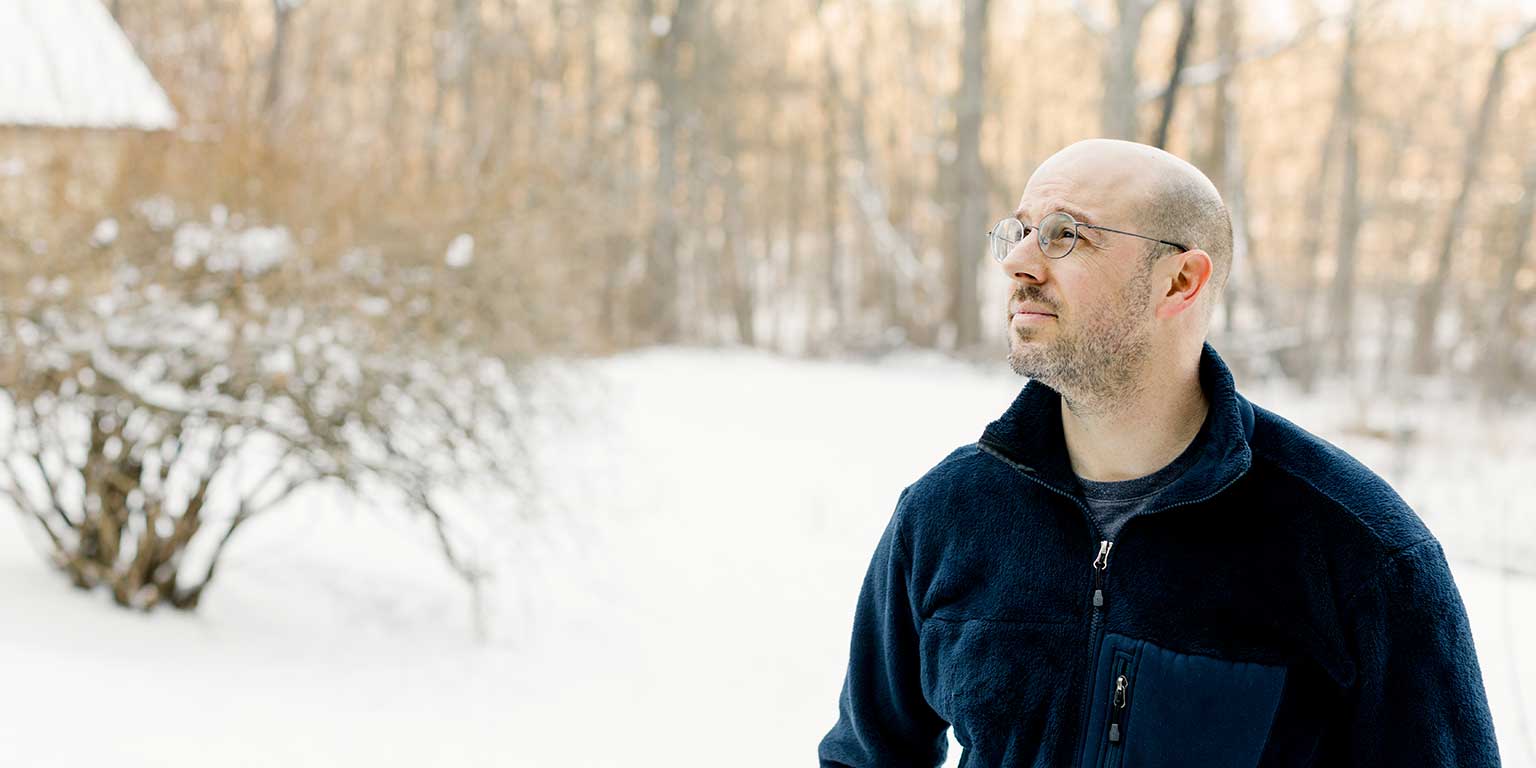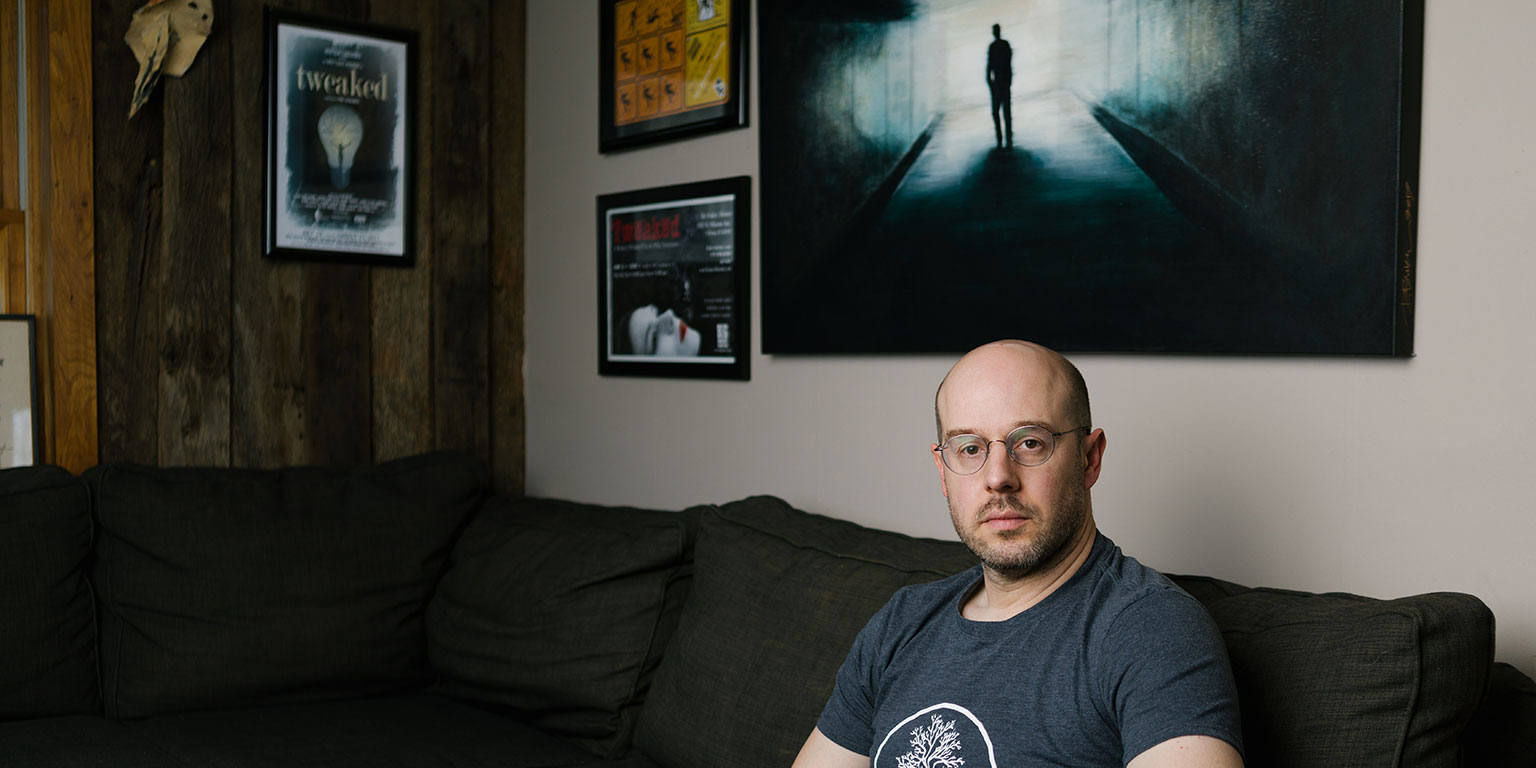By Lana Spendl | Fall 2018
Photography by Anna Powell Denton
Paul Shoulberg (M.F.A. ’07, Theatre) joins me for our interview at Soma Coffee House — a crowded, basement café in downtown Bloomington. Ads and local art pepper the walls. Amid voices and the whir of coffee machines, Paul orders a coffee and tells me that he just came from the public library across the street. He’s started a new script. He’s five pages in. He’s excited.
The thrill of beginning a new script is a familiar experience for Paul. He’s written about 20 screenplays. Three have been made into films, two directed by Paul himself. Indiana University, he says, is where he found his voice. There, he honed his craft by hearing actors perform his lines. His first film, Walter,emerged from a short story he wrote just after finishing the program. We plunge into talk of writing and the larger questions he explores in his films.
“I’m interested in the big, big philosophical questions,” Paul says. “Life and death. Is there a God?”
Ms. White Light, the film Paul is currently editing, is about a woman who helps people die. She focuses on the deaths of others, he tells me, while avoiding thoughts of her own ending.
For Paul himself, death is a persistent question. It wakes him up in the night. He wonders in the dark what it would mean to die this very instant. He wonders about the afterlife. He wonders what meaning death casts upon life. When he reads books or watches films and notices a writer approaching the idea of death, he focuses in the hope of hearing some kind of answer. Rationally, he knows that no one can give him that answer, but he still hopes to find himself a bit more enlightened or a bit more at peace than he had felt moments before.





